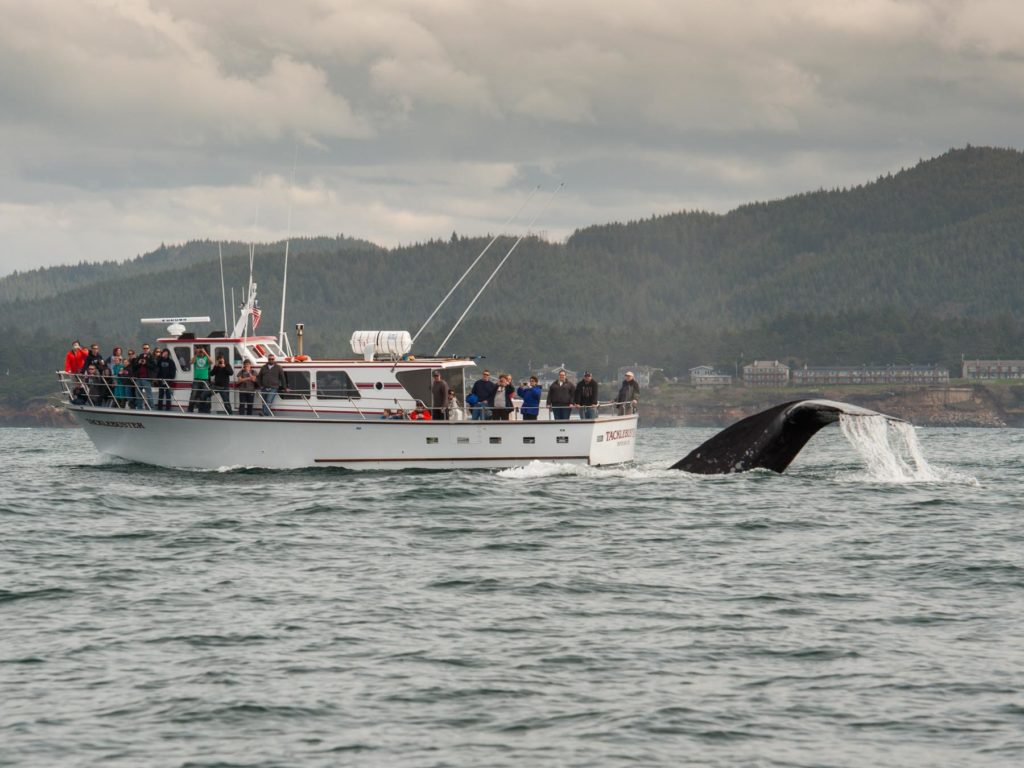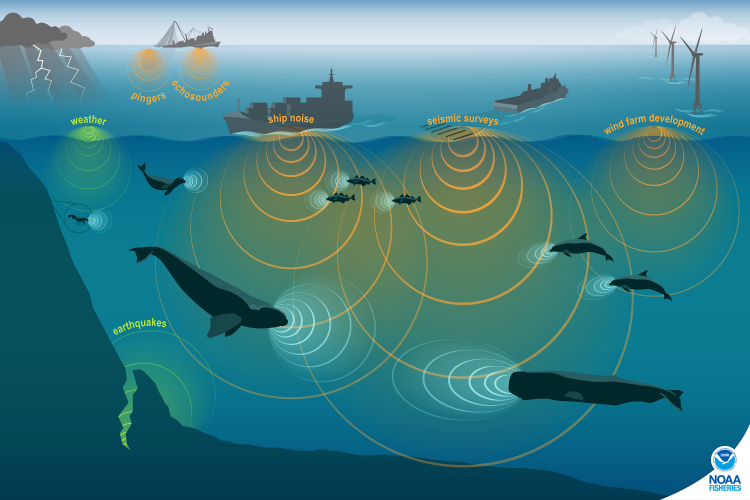Impacts of Ocean Noise
Gray whales have increased stress levels when there is more noise and boats in the water. More specifically, we found that the levels of the hormone cortisol in the poop of whales are correlated to the amount of noise in the ocean and boats on the water the day before the poop sample was collected. This 24-hour lag in the relationship is due to the time it takes for the hormone to be released into the bloodstream and then processed through the gut and out the other end for us to pick up. We also found that skinnier whales have a stronger stress response than fat whales, which may indicate that when whales are skinny due to low food availability, the added impacts of noise and boat traffic can cause the health of whales to decrease further. So, why does ocean noise matter to whales?

Listen to these two sound clips recorded off the Oregon coast to compare what it sounds like underwater with and without boats nearby.
Since light does not travel well in the ocean, whales rely on sound to communicate with each other, listen for predators, find food, navigate, and find mates. However, noise levels in the Pacific Ocean have increased dramatically over the last few decades, meaning that the ability for whales to do all these important life activities is much harder now, and this may be increasing their stress levels.
To study this relationship between ocean noise and whale stress, we record the soundscape near gray whales using hydrophones (underwater sound recorders) and we collect whale poop to examine the hormone levels of that individual, including its stress level. With these data, we have documented that the physiology of whales is impacted by ocean noise and vessel traffic, which could affect their overall health and ability to reproduce. Ocean noise increases with increased boat traffic, so we do not know yet if this rise in whale stress is related to increased collision risk or increased noise or both, but we continue to research this question.
Want to read more? Check out these resources:
Pirotta E, Fernandez Ajó A, Bierlich K, Bird CN, Buck CL, Haver SM, Haxel JH, Hildebrand L, Hunt KE, Lemos LS, New L, Torres LG (2023) Assessing variation in faecal glucocorticoid concentrations in gray whales exposed to anthropogenic stressors. Conservation Physiology 1110.1093/conphys/coad082. https://academic.oup.com/conphys/article/11/1/coad082/7410313
Lemos LS, Haxel JH, Olsen A, Burnett JD, Smith A, Chandler TE, Nieukirk SL, Larson SE, Hunt KE, Torres LG (2022) Effects of vessel traffic and ocean noise on gray whale stress hormones. Sci Rep 12:18580 10.1038/s41598-022-14510-5. https://doi.org/10.1038/s41598-022-14510-5
Blog: The effects of vessel traffic and ocean noise on gray whale stress hormones https://blogs.oregonstate.edu/gemmlab/2022/11/28/the-final-chapter-the-effects-of-vessel-traffic-and-ocean-noise-on-gray-whale-stress-hormones/



